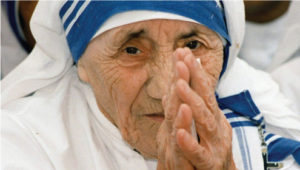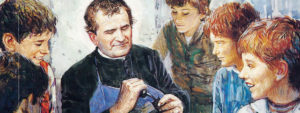A Child’s Courage
No one probably has explored the inner lives of children as deeply and as consistently as psychiatrist and Harvard professor, Robert Coles. Sociologist and best-selling novelist Andrew Greeley described Coles as “scientist, humanist, political activist, psychiatrist, minstrel, wandering storyteller, mystic, wise man, poet, dissenter, and yes, I’ll use the word, secular saint.” According to Alvin P. Sanoff of U.S News and World Report, “Robert Coles has told us more about the diverse and complex lives of children than any other scholar of his generation.” After his much-acclaimed five-volume Children of Crisis, Coles went on to write The Moral Life of Children, The Political Life of Children and The Child in Our Times. The culminating work of the series is The Spiritual Life of Children, in which Coles brings to an end some thirty years of well-researched writing about children.
Coles dedicated much quality time and persistent effort to listen to children and learn from them—something most adults fail to do. One dramatic example is his meeting with Ruby Bridges, a six-year-old black child whom Martin Luther King Jr. called a “hero of the civil rights movement.” During the months of desegregation of schools—when the US government forced schools which earlier admitted only “white” children to admit children of all races, Ruby walked to school facing crowds of white parents who hurled the worst imaginable insults at her, and threatened her. How did she get her courage? This is what her (white) teacher had to say:
‘I watch her walking with those federal marshals, and you can’t help but hear what the people say to her. They’re ready to kill her. They call her the worst names imaginable. I never wanted “integration,” but I couldn’t say those things to any child, no matter what her race. She smiles at them—and they’re saying they are going to kill her. There must be 40 or 50 grown men and women out on those streets every morning and every afternoon, sometimes more. One of the marshals said to me the other day: “That girl, she’s got guts; she’s got more courage than I’ve ever seen anyone have.” And he told me he’d been in the war; he was in the army that landed in Normandy in 1944. He told me Ruby didn’t even seem afraid—and she sure remembered how scared they all were sailing to France. I agree with him; she doesn’t seem afraid. There was a time, at the beginning, that I thought she wasn’t too bright, you know, and so that was why she could be so brave on the street. But she’s a bright child, and she learns well. She knows what’s happening, and she knows that they could kill her. They look as mean as can be. But she keeps coming here, and she told me the other day that she feels sorry for all of them, and she’s praying for them. Can you imagine that!’ (1)
The greatness of Coles lies at least in part in this, that he listened to children like Ruby, without trying to fit them into his psychiatric categories. In fact, he left their experiences and witness challenge the dogmas of his profession. When Ruby would reply to his quizzing about whether she was not afraid by saying, “I do what my granny says; I keep praying,”
What the Poor Taught Mother Teresa
In one of her talks, Mother Teresa told the audience how much she had learnt from the poor.
One day, when she came back to the Mother House after travels, a sister told her about a poor family that had not cooked for days. Immediately, Mother took some rice, dal and vegetables—whatever a poor family would need for preparing a meal—and rushed to give it to them. The woman who lived in that hut came out, accepted what Mother Teresa had brought, and went in. Mother Teresa thought she would start cooking, since she and her children had had no food for three days. Instead, the woman rushed out of the house, carrying something.
Mother waited. When the woman returned, Mother Teresa asked her, “Where did you go? I thought you would start cooking immediately.” The poor woman replied that one of her neighbours had not cooked anything for three days, and so, she had taken half of what Mother brought and given it to that other family.
Incidentally, the two families belonged to two different religions. One was Hindu, the other Moslem.
(1) Robert Coles, Harvard Diary: Reflections on the Sacred and the Secular (New York: The Seabury Press, 1996), pp. 113-114.
What Struck John in India
A young American called John came to India to study Mahatma Gandhi’s thought, and to do voluntary work. He spent several months in India, helping in various centres that looked after the needy. When I met him in his home town (Boston) the next year, I asked him, “John, what impressed you most in India?” He gave me an unexpected answer: “The generosity of the poor.” “How?” “Going from the US to India, I came across dire poverty. I had never seen such misery. But what struck me most was the generosity of the poor. A poor person or family have so little in their tiny hut, and they are ready to share that. Amazing hospitality, for instance. I had never seen such generosity.”
The Salesian Who Decided to Quit
Joseph Buzzeetti was a young man who got to know Don Bosco, liked him and his work, and became a Salesian Brother. He was one of Don Bosco’s first helpers.
Later, a few of the boys Don Bosco looked after, joined, and supervised the boys. As seminarians, they wore a cassock and held responsibilities in the institute.
Joseph Buzzetti did not like some of these changes. Being impulsive and somewhat hot-tempered, he said, “These are fellows whose noses I have wiped, and now they are the big shots here.” He felt less important than before, and decided to leave.
Without consulting anyone, he went out, and found a job. Then, he went to Don Bosco to wish him good-bye.
What happened next moves me each time I narrate this episode to groups.
Buzzetti told Don Bosco, “Don Bosco, I am not happy here. I have decided to quit. I have found a job. I came to wish you good-bye.”
Don Bosco did not lecture him on vocation or such matters. He did not blame the young man for taking all these decisions without consulting him. He told Buzzetti, “Joseph, I am glad you have found a job. But, although you have a job, at the beginning there will be hardships.”
Don Bosco then opened the drawer of his desk, and told the young man, “Joseph, you know this desk better than I do. Take from it whatever you need. And, whenever you need something, don’t hesitate to come and get it.”
Then he looked at Joseph Buzzetti with great love and added, “Joseph, we have been friends. I hope you will not forget me.”
Joseph Buzzetti burst into tears. He never left
– Fr. Joe Mannath SDB is the National Secretary of CRI and the editor of this magazine
To subscribe to the magazine Contact Us





